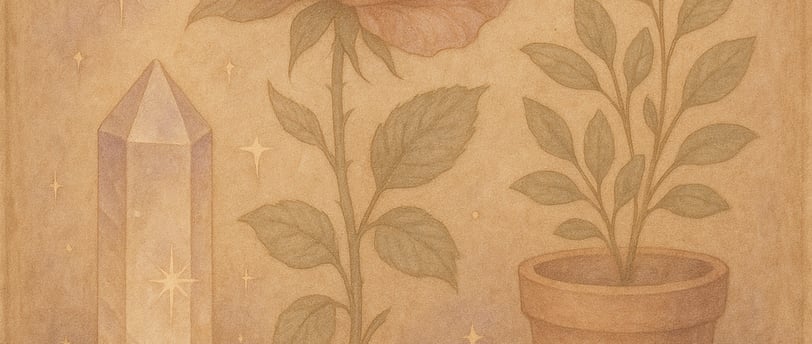A secret note from a soul player
Self help.
Effie
5/21/20254 min read


I’ve played games my whole life. Before computers, I made up adventures with playmates. I played with nature, turned rivers into kingdoms. Indoors, I had dolls and invented entire worlds. Then came computers—plane shooters, 3D pinball, Red Alert, racing games. I probably tried every trending game—flash games, zombie defense, shooting games. All in. Level up. Find treasure. Beat the boss.
So what makes a good player? Curious. Brave. Joyful. Having fun. Detached. Meeting other good players—instant connection, community, silent sync, laughing at fails, sharing secret tricks.
Playing Mode Shift
Getting attached is kind of funny. You know it’s a game, but then it gets so real. Like when you're playing Big Fish Eat Small Fish—imagine if every time your tiny fish got eaten, you actually felt it in your body. Ouch. It hurts. That’s when you forget you’re the player. And forgetting isn’t “bad”—it’s part of the immersion. That’s what makes the game so detailed.
This game? It runs deep. Senses were added to trigger emotions—fear, joy, shame, pride. Everything comes in pairs. Pain and joy. Doubt and clarity. Lost and found. You need contrast. Otherwise, the game goes flat.
Whatever happens to the character isn’t really happening to you. Sure, I still get annoyed when I mess up. But it’s not failure—it’s just feedback. Practice. Adjust. Try again.
Program Boot Up
As soon as you drop in, the training starts. You learn how things work, what everything means—but here’s the trick: there’s no universal manual. You learn from other players based on what they figured out. Parents, school, society—they hand you their scripts. Some players forget they’re playing. Others are fully aware, building systems, creating quests. That’s their style. Their version.
There’s no one right path. But many players will insist there is—based on their own route. And every so often, game modes shift. The whole platform evolves. It’s organic. A living system. People come here looking for something, and this place offers everything. Otherwise, you wouldn’t have joined the round.
Pain = Map Marker
Pain is misunderstood. It’s programmed as “bad,” but it’s more like a sign: “Maybe not this way.” Or maybe it is—if you signed up for a pain-resilient playthrough. That’s valid too.
Sometimes you’ll see players repeatedly hitting the same wall. They pile up beside each other. That’s their loop. Either they’ll figure it out or restart. Everyone gets a restart. That part is kind of beautiful.
Some souls see the pileup and feel called to help—dragging, guiding, teaching, podcasting, painting, memeing. That’s how they play. Play however you want. Just don’t forget—you’ve got your own game too. Unless helping is your game. Then that’s your playstyle.
Tools
Harder levels come with more interesting tools. More illusions? Sharper senses. And now that information is everywhere, duality’s hitting its peak. You picked this level for a reason.
Everything’s created in pairs. A challenge comes with a solution. More problems, more tools. Tools can flip—like "no pain no gain." It helps some, traps others. It depends how you use it.
Presence is one of the more popular tools now. It helps clear the fog, feel more, see better. But not everyone came here to master that. Some souls just want to enjoy the breeze. Smell flowers. Sit under the sun. That’s a valid path.
Others use presence to unlock deeper puzzles. Decode hidden layers. It all works.
Just don’t get stuck copying someone else’s strategy because it sounded wise. Unless trying things out is your style. And you’re aware of it.
Why Did You Drop In This Round?
Childhood before rules holds clues.
As a kid, I made up fairy tales with twists and magic. I wrote strange dream-worlds. Built cardboard shops. Created costumes and doll stages. Made accessories from scraps. I loved beauty, nature, making things up. If no one joined me, I still played—full cast, inner dialogue, all-day marathons on the floor. I was completely immersed.
Somewhere along the way, the programming kicked in. Life became “work hard on something boring to survive.” What does that even mean? But I followed it anyway, even while my soul kept screaming, “I don’t want to do this, I want to play!!!”
Finally I realized—I came here to build. To create. To dive deep. My energy is intense. I read patterns. I turn random stuff into tools. I’ve spent hours in the supernatural mode—chasing clues, trying to remember something big. That’s when I feel most alive. I focused on waking up. Fast. Seeing through illusions. Breaking spells.
That’s probably my original plan. Build. Imagine. Guide. Whisper, “Hey, I made a game—wanna try?” Do something weird. Poke around. Open secret doors.
Final Tip?
Don’t freak out at the senses. You’re not the tiny fish or the big fish. The sensations were created to make the game feel rich—not to make you suffer. And yes, sometimes it really hurts. And then it passes. Pain is inevitable if you’re moving—and even if you’re not. Game modes shift. You can’t stay still forever.
Follow what sparks joy or makes you curious—or don’t. It’s okay. You get to restart. Nothing’s permanent—unless you want it to be.
It’s all fluid. People pile up at walls sometimes. So what?
Feel everything deeply? Great—you can follow the signals easily. Feel nothing? Also great—you’ve got speed and clarity. Every style works.
Some sprint. Some wander. Some float. Some glitch. Some dance their way through.
You came to play. Your way.
There’s no way you can mess up in your own game. It might look like that through someone else’s lens, especially if you’re playing by their rules. But that’s a valid game too—if that’s what you chose.
